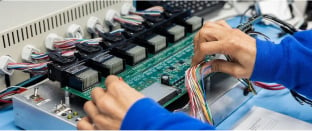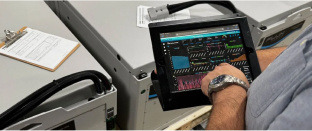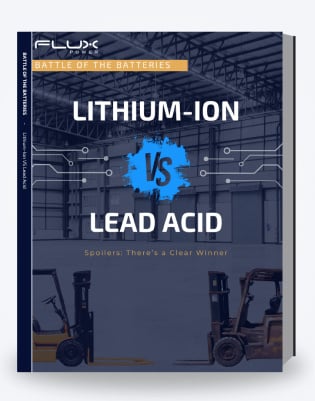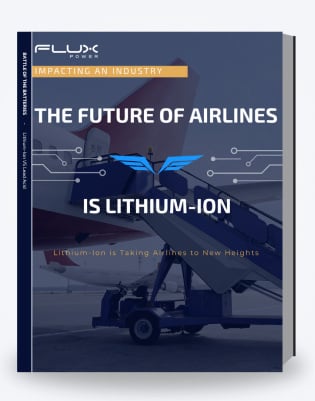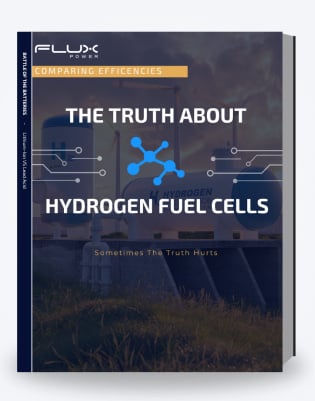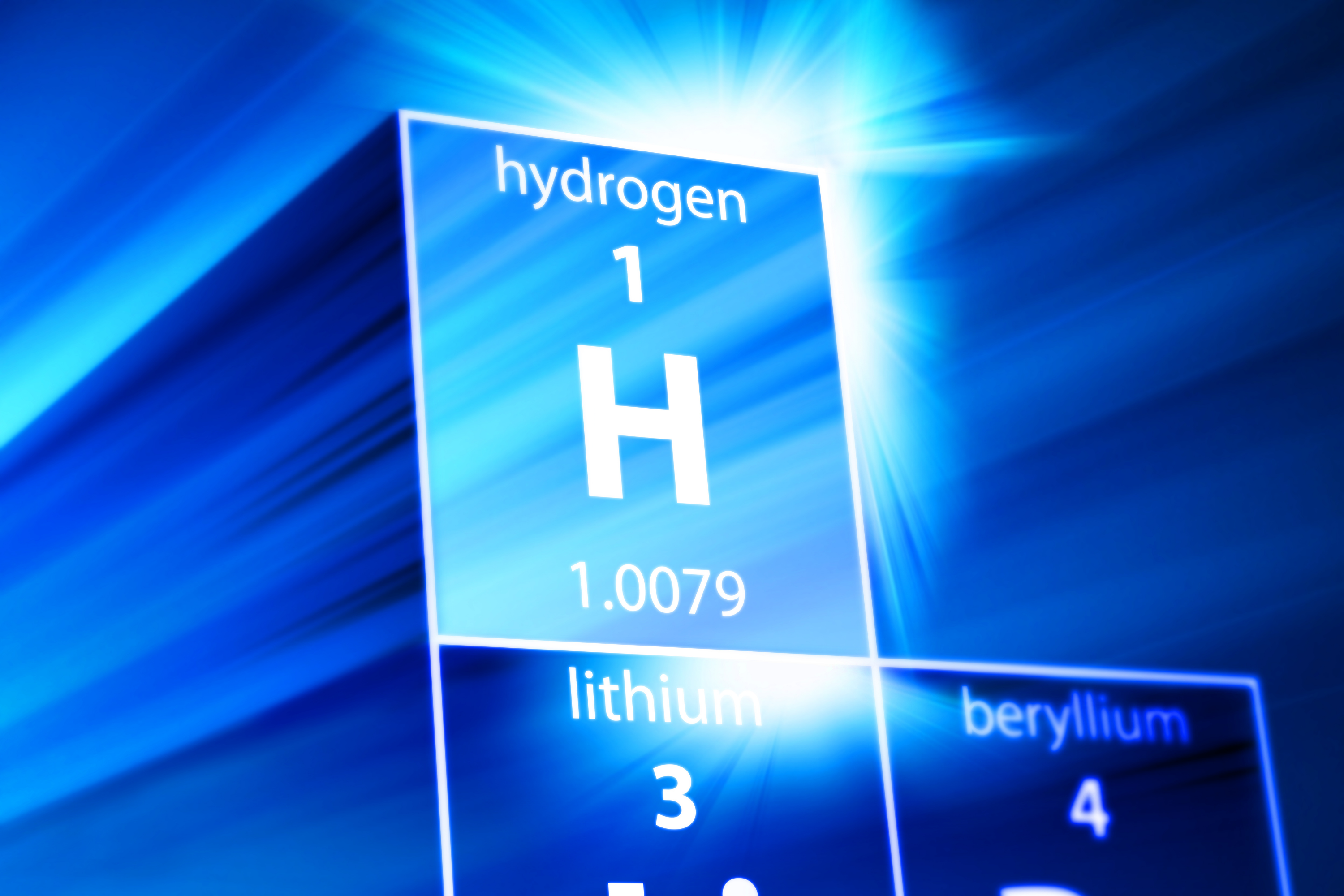Hydrogen is being used as a fuel alternative that is emerging in the industrial space due to the benefits it provides in powering different types of equipment. Fuel cells are where the electrochemical reaction between hydrogen and oxygen takes place. These cells produce electricity to power different types of equipment.
How Does a Hydrogen Fuel Cell Work?
Hydrogen fuel cells have a very different process to produce electricity.
Hydrogen is fed into a cell with two electrodes that crowd an electrolyte from both sides. The negative electrode (anode) receives the hydrogen and air is fed to the positive electrode (cathode). The chemical reaction at the anode then strips the hydrogen molecules of their electrons. The electrons proceed through an external circuit to provide electricity, while the positively charged hydrogen move within the battery from the anode to the cathode. At the cathode, oxygen in the air combines with the hydrogen ions and electrons to produce water and heat as the byproducts of the reaction.
In order to produce hydrogen (with zero emissions) a process called, electrolysis. 20 - 30% of energy is lost in the process of creating hydrogen. The hydrogen must then be compressed and stored, losing another 10%. Finally, another 30% is lost when converting the hydrogen into electricity. This leaves you with 30 – 40% of the original energy used.
Hydrogen naturally has high energy density making it a valuable energy source. In fact, hydrogen has higher energy density than propane or gasoline.
But handling this high energy density fuel is challenging. The issue stems from the space and weight required to store the hydrogen. In a stationary storage application this is hardly a problem, but in Fuel Cell Electric Vehicles (FCEVs) space and weight is very limited.
Hydrogen can be stored as a gas or liquid:
- Gas: requires high-pressure tanks
- Liquid: requires super cold (cryogenic) temperatures
Hydrogen also must be isolated because it bonds easily with other elements. This isolation process can be expensive and energy inefficient.
Storing hydrogen is expensive, which makes it economically unviable for smaller-sized or medium-sized operations to try to convert their fleets to hydrogen fuel cells.
The Debate Between Lithium-ion and Hydrogen Fuel Cell
Hydrogen requires nearly as much energy to produce as it delivers. The CE rating (energy efficiency) for hydrogen is around 60%.
Even though fuel cells can last an entire shift before needing to resupply, the energy cost per km is 3x more. To incorporate hydrogen fuel cells into a warehouse operation, a company is faced with the decision to either transport the hydrogen on tanker trucks or generate hydrogen on-site. Shipping the hydrogen via truck can be costly. On the other hand, generating hydrogen on-site reduces fuel costs but requires a huge infrastructure investment
Lithium-ion batteries are the most energy efficient way to power equipment fleets, with a CE rating of ~ 99%. Because lithium-ion batteries are energy efficient they can maintain high voltage output at a lower state of charge throughout a shift.
Why You Should Choose Lithium-ion Batteries Instead of Fuel Cells
One of the benefits of hydrogen fuel cells is the short refueling time, allowing operators to get back to work quicker. But this advantage comes at a significantly higher operating cost. On the other hand, lithium-ion batteries have the ability to opportunity charge during breaks and lunches while having a lower total cost of ownership.
Operations won’t need to worry about special storage conditions required for hydrogen when they use lithium-ion battery packs for their forklift fleet. Lithium-ion battery packs can be opportunity charged anywhere because they don’t emit any harmful toxins or need a station to refuel. This in turn, helps reclaim manufacturing or storage space for operations.
With several options to choose from, it is important to take a look at the safety and performance of hydrogen fuel cells vs lithium-ion battery packs.
FAQs - Lithium-ion and Hydrogen Fuel Cell
Q: Which is more energy efficient—hydrogen fuel cells or lithium-ion batteries?
A. Lithium-ion batteries typically have round-trip efficiencies of 85–95%, while hydrogen fuel cells average 40–60%.
Q: What are the main drawbacks of hydrogen fuel cells compared to lithium-ion batteries?
A. Hydrogen systems require more infrastructure, involve higher energy losses, and are less efficient in warehouse applications where consistent uptime and energy savings are critical.
Q: Why do lithium-ion batteries perform better in electric forklifts than hydrogen fuel cells?
A. Lithium-ion offers faster charging, fewer moving parts, and simpler infrastructure. They're ideal for electric forklift operations that demand speed, scalability, and reduced downtime.
Q: Are hydrogen fuel cells a cleaner option than lithium-ion batteries?
A. While hydrogen is clean at the point of use, lithium-ion often has a lower total energy loss across the lifecycle—especially when paired with sustainable warehouse practices.
Q: What is the round-trip efficiency of a hydrogen fuel cell vs. a lithium-ion battery?
A. Hydrogen fuel cells convert about 40–60% of input energy to usable power. In contrast, lithium-ion batteries can exceed 90%, making them more energy-dense and cost-effective.

